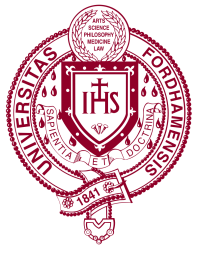The Humanity in Action Fellowship is an international program aimed at bringing together passionate young people from diverse backgrounds to explore issues regarding human rights, social justice, and democratic values. HIA’s goal is to equip the leaders of tomorrow with the knowledge, skills, and networks they need to promote equality and combat systemic issues. Fellows have the opportunity to participate in a variety of programs and activities, such as intensive study programs and local action projects.
Find out more about Humanity in Action here and contact us at fellowships@fordham.edu if you are interested in applying!
April Gore double majored in Women, Gender and Sexuality Studies and Sociology at Fordham College at Lincoln Center. On campus, she participated in pre-law organizations and community-engaged learning communities, while off campus she was involved in local and national Japanese American organizing efforts. After graduation, April moved to Tulsa, Oklahoma to work for a holistic defense office called Still She Rises where she conducted original research and was part of the legal teams representing clients in economic justice and impact litigation matters. She currently lives in Los Angeles and enjoys craft sake, road running, and literary fiction.
April was awarded the Humanity in Action Fellowship last summer. She spent three fully funded weeks in Berlin, learning from local activists and scholars.
Below is April’s interview with our office.
What motivated you to apply for the Humanity in Action Fellowship?
I was attracted to Humanity in Action’s roots in studying acts of resistance during World War II – its commitment to the power of collective resistance to violence. I looked forward to communicating with people who advance this approach in their own contexts and exposure to how our respective national, and other backgrounds inform our perspectives.
How do you plan to apply what you learned during the fellowship to your community?
The post-program component of the fellowship involves designing and implementing an Action Project. I plan to work on reparations organizing across communities, likely engaging Japanese American reparations recipients and their descendants.
What challenges did you face during the fellowship, and how did you overcome them?
When I encountered a difference of opinion, I leaned into curiosity and conversation. I tried my best to stay present, prioritize connection, and relish in new experiences.
How do you see yourself contributing to the field of human rights?
I’ve engaged with research, legal representation, and community organizing that seek to advance social justice. I’d like to always continue studying and organizing, formally and informally, and be in spaces that are values-aligned.
Can you share a pivotal moment in your life that shaped your understanding of human rights?
Being welcomed into Japanese American community organizations like the New York Day of Remembrance Committee showed me that I didn’t have to be a lawyer, professor, or social worker or hold a title to build a more liberated world. Young people like myself could organize study groups, protests, and more.
What words of wisdom can you offer to other students applying for this scholarship?
Appreciate the process of crafting a written statement, of reflecting on where your experiences have already brought you and the myriad of places they could take you. My research on Humanity in Action and its network expanded my perspective on what a future engaging in social movement work could look like.



